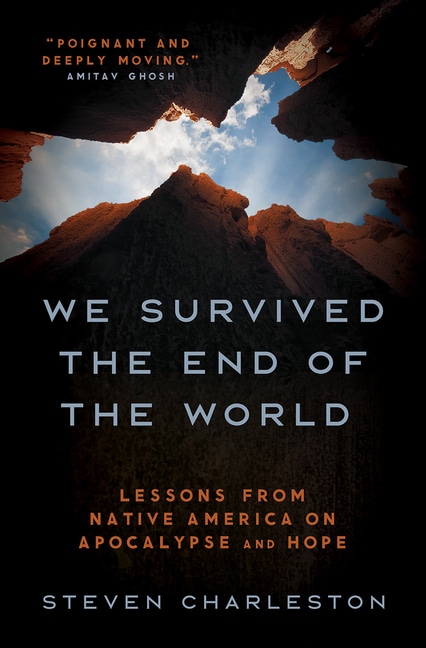
We Survived the End of the World: Lessons from Native America on Apocalypse and Hope
$26.99

$26.99
From the moment European settlers reached these shores, the American apocalypse began. But Native Americans did not vanish. Apocalypse did not fully destroy them, and it doesn't have to destroy us.
Pandemics and war, social turmoil and corrupt governments, natural disasters and environmental collapse--it's hard not to watch the signs of the times and feel afraid. But we can journey through that fear to find hope. With the warnings of a prophet and the lively voice of a storyteller, Choctaw elder and author of Ladder to the Light Steven Charleston speaks to all who sense apocalyptic dread rising around and within.
You'd be hard pressed to find an apocalypse more total than the one Native America has confronted for more than four hundred years. Yet Charleston's ancestors are a case study in the liberating and hopeful survival of a spiritual community. How did Indigenous communities achieve the miracle of their own survival and live to tell the tale? What strategies did America's Indigenous people rely on that may help us to endure an apocalypse--or perhaps even prevent one from happening?
Charleston points to four Indigenous prophets who helped their people learn strategies for surviving catastrophe: Ganiodaiio of the Seneca, Tenskwatawa of the Shawnee, Smohalla of the Wanapams, and Wovoka of the Paiute. Through gestures such as turning the culture upside down, finding a fixed place on which to stand, listening to what the earth is saying, and dancing a ghostly vision into being, these prophets helped their people survive. Charleston looks, too, at the Hopi people of the American Southwest, whose sacred stories tell them they were created for a purpose. These ancestors' words reach across centuries to help us live through apocalypse today with courage and dignity.
| ISBN-13 | |
| ISBN-10 | |
| Publisher | |
| Publication Date | |
| Edition | |
| Language | |
| Pages | |
| Dimensions | in x in x in |
| Weight | lbs |
Reviews
There are no reviews yet.